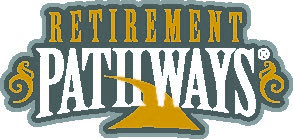SUBSCRIBE
Enter your Name and Email address to get
the newsletter delivered to your inbox.
Please include name of person that directed you to my online newsletter so I can thank them personally.


Dianne Williams Wildt, MBA
Certified Retirement Counselor®
Since 1983 in the financial services and investment industry
Retirement Pathways, Inc.
4500 Bowling Blvd., Suite 100
Louisville, KY 40207
Phone: 502-797-1258
Email: dianne@retirementpathways.com
Website: www.retirementpathways.com

Compared to setting up a trust, choosing a trustee can be relatively simple. But not always. Money can drive a wedge between even the closest families, so choosing between a loved one, a professional advisor or a financial institution as trustee isn’t easy.
A trustee may need expertise in multiple areas, depending on the trust’s complexity. For example, the trustee must serve as a business administrator to record financial activities, such as scheduled disbursements to beneficiaries, investment results and more. That person may also be responsible for managing investments, which even professionals have difficulty doing during volatile economic times.
The trustee must also file local, state and federal tax returns, even if the beneficiaries are receiving tax-free disbursements, and may need to understand arbitration should a disagreement between the trust’s beneficiaries arise.
Knowledge of a loved one’s philosophy makes it more likely the trustee will follow the original intention of the trust. However, emotions and even money could get in the way and cloud the trustee’s judgments. For example, it’s easy to see a conflict if a trustee who is also a beneficiary has to decide whether to grant emergency funds to a beneficiary, which could reduce the trust’s principal and the trustee’s share.
A financial institution serving as trustee might have the multi-disciplinary skills needed and would take the emotions out of decision-making. But the institution might not have familiarity with the intentions of the trust’s creator, the grantor. So, if you plan to create a trust, research your options before making a final decision.
Enter your Name and Email address to get
the newsletter delivered to your inbox.
Please include name of person that directed you to my online newsletter so I can thank them personally.
Enter your Name, Email Address and a short message. We'll respond to you as soon as possible.
Investment advisory services offered through American Capital Management, Inc., a State Registered Investment Advisor. Retirement Pathways, Inc. is independent of American Capital Management, Inc.
Retirement Pathways, Inc. and LTM Marketing Specialists LLC are unrelated companies. This publication was prepared for the publication’s provider by LTM Client Marketing, an unrelated third party. Articles are not written or produced by the named representative.
The information and opinions contained in this web site are obtained from sources believed to be reliable, but their accuracy cannot be guaranteed. The publishers assume no responsibility for errors and omissions or for any damages resulting from the use of the published information. This web site is published with the understanding that it does not render legal, accounting, financial, or other professional advice. Whole or partial reproduction of this web site is forbidden without the written permission of the publisher.